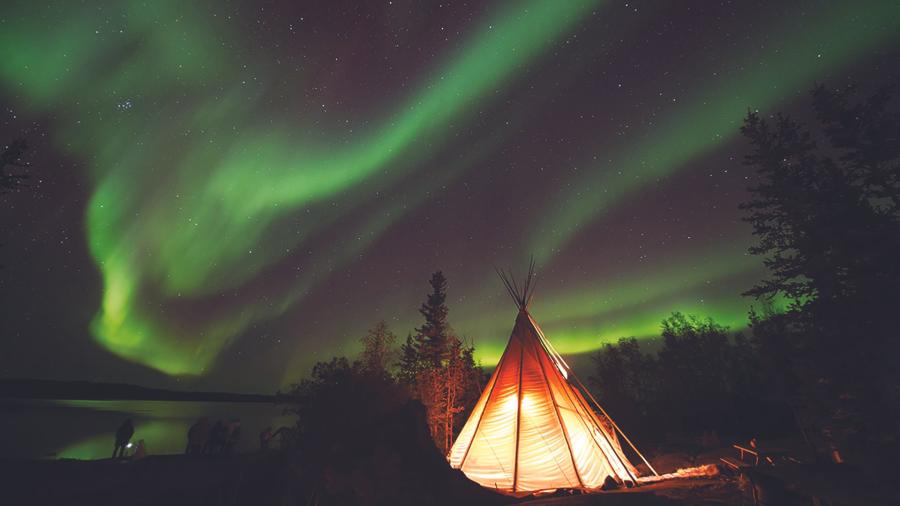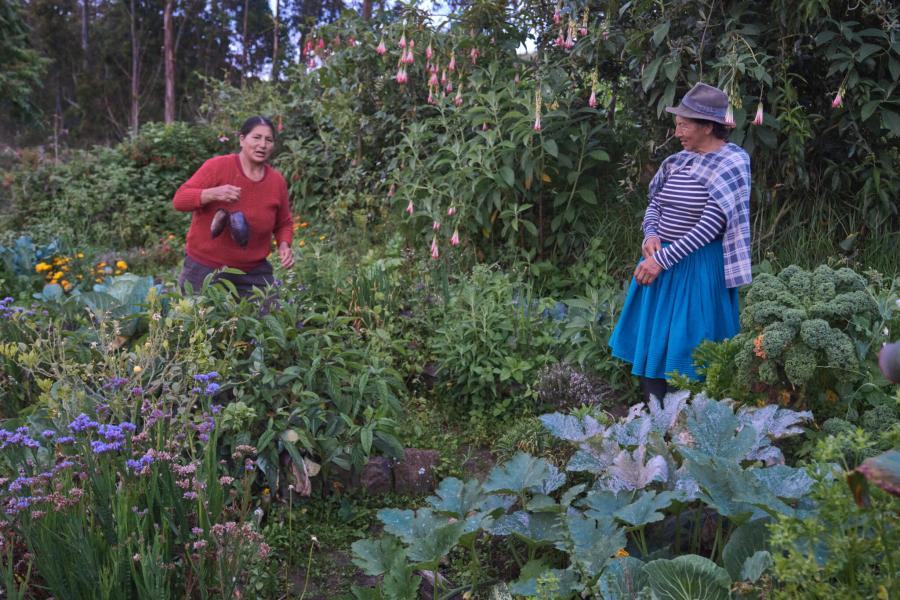In America, we worry and argue a great deal about the effects of television in our homes and in our society. We fear that it distorts our elections, glamorizes violence, and all too often subverts the values that we cherish. Above all, we are uneasy about the insidious power of the media to influence us in spite of ourselves. Imagine then how indigenous minorities feel, in the United States and elsewhere, when they experience the power of the media for the first time. Small wonder that some contributors to this issue of the Cultural Survival Quarterly compare the effect to nerve gas or the neutron bomb.
Why should television and even radio programming have such a devastating effect on indigenous peoples? Because they are already outnumbered and overpowered by larger societies who deliberately or accidentally work to eliminate the languages and cultures of minorities. It is hard for native English speakers to imagine how it feels to speak a language that could easily disappear in one's own lifetime. Many indigenous peoples have to live with this awareness and the uncertainties about their own cultures that go with it, about who they are, and whether they will be able to stay that way. Once they let `mainstream' media into their homes, they find themselves helplessly looking on while their children are weaned away from their ancestors' way of life and perhaps, even lose facility in their ancestors' language -- if they ever acquired it in the first place.
The solution that many indigenous peoples seek is native programming -- television, but preferably radio programming -- that is controlled and broadcast by indigenous peoples themselves. Radio programming is preferred because it is much cheaper and more akin to the rich oral traditions that are such a prized heritage of most indigenous cultures. Native radio programs, however, cannot reproduce the flow of traditional storytelling or traditional discussions with their long pauses and their sense of timelessness. Even native radio programs have time constraints and cannot broadcast epic stories or performances that, traditionally, might have taken days or weeks to complete.
Native programming is furthermore, chronically underfunded and broadcasters are constantly forced to choose between bankruptcy and airing programs that are more commercial and therefore less specifically directed towards minority cultures. Even when there is adequate funding, native programming faces other problems. Many communities that local broadcasting seeks to reach are remote and members of those communities may speak different languages or mutually unintelligible dialects. Therefore, it is hard to decide what to air, in what language, and for whom.
The issue of who controls the media and therefore directs their powerful influence does not, of course, only affect indigenous peoples. Modern nations are also acutely sensitive on this point. American television programming is seen and causes concern throughout the world. Many countries have passed laws insisting on a certain percentage of locally produced programs. Canada, for example, requires a certain percentage of `Canadian content' in its programming, while internally, Quebec makes sure that francophone programs have pride of place in its broadcasting. Perhaps it is because of these internal and external sensitivities that Canada has taken the lead in facilitating and paying for native programming, especially programs that are aimed at the tiny communities in the country's Far North. In fact, the populations of many, if not most modern nations, are also preoccupied with questions of ethnic identity and cultural survival. They resist both the assimilationist pressures of the state and the standardizing pressures of `the global economy.' This has resulted in local assertiveness leading to new cultural and political arrangements in those countries that work out such issues amicably. The Basques and the Catalans now control their own provinces in Spain, in which Basque and Catalan are the official languages on a par with Spanish. Scotland and Wales are about to have their own parliaments and now, there is even a prospect that the people of Northern Ireland will agree to live by a new constitution that permits them to not only run their own affairs, but to be Irish or British or both, all at the same time.
If comparatively large populations in highly industrialized countries are struggling to maintain their cultural identities in the modern world, then it is not surprising that numerically smaller groups in remote places find it an even greater struggle. A key element in this struggle is the provision of culturally sensitive programming in minority languages. If this is available, and usually it is only made available in nations that tolerate or even value multiculturalism, then indigenous peoples have a better chance of maintaining the vibrancy of their cultures as they cope with the changes of the coming millennium.
Article copyright Cultural Survival, Inc.



